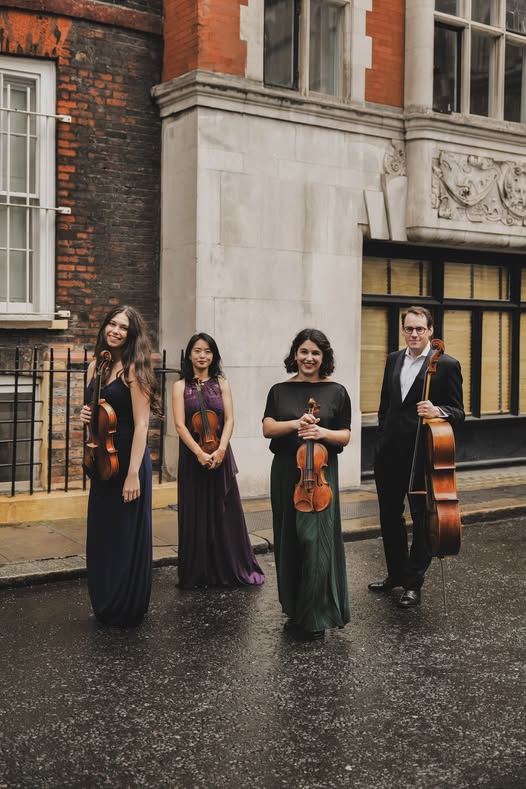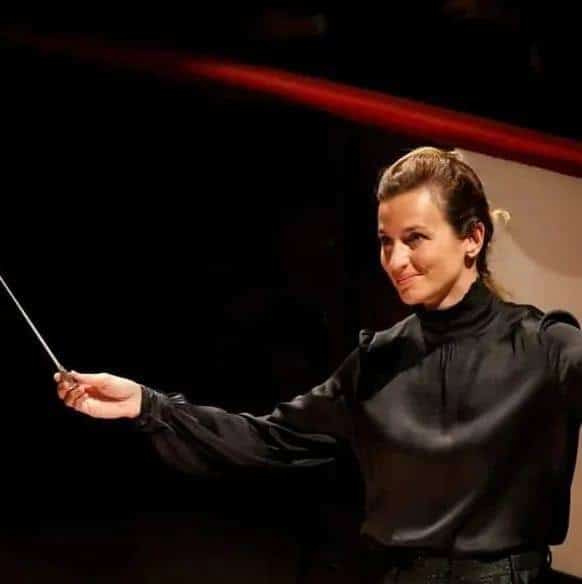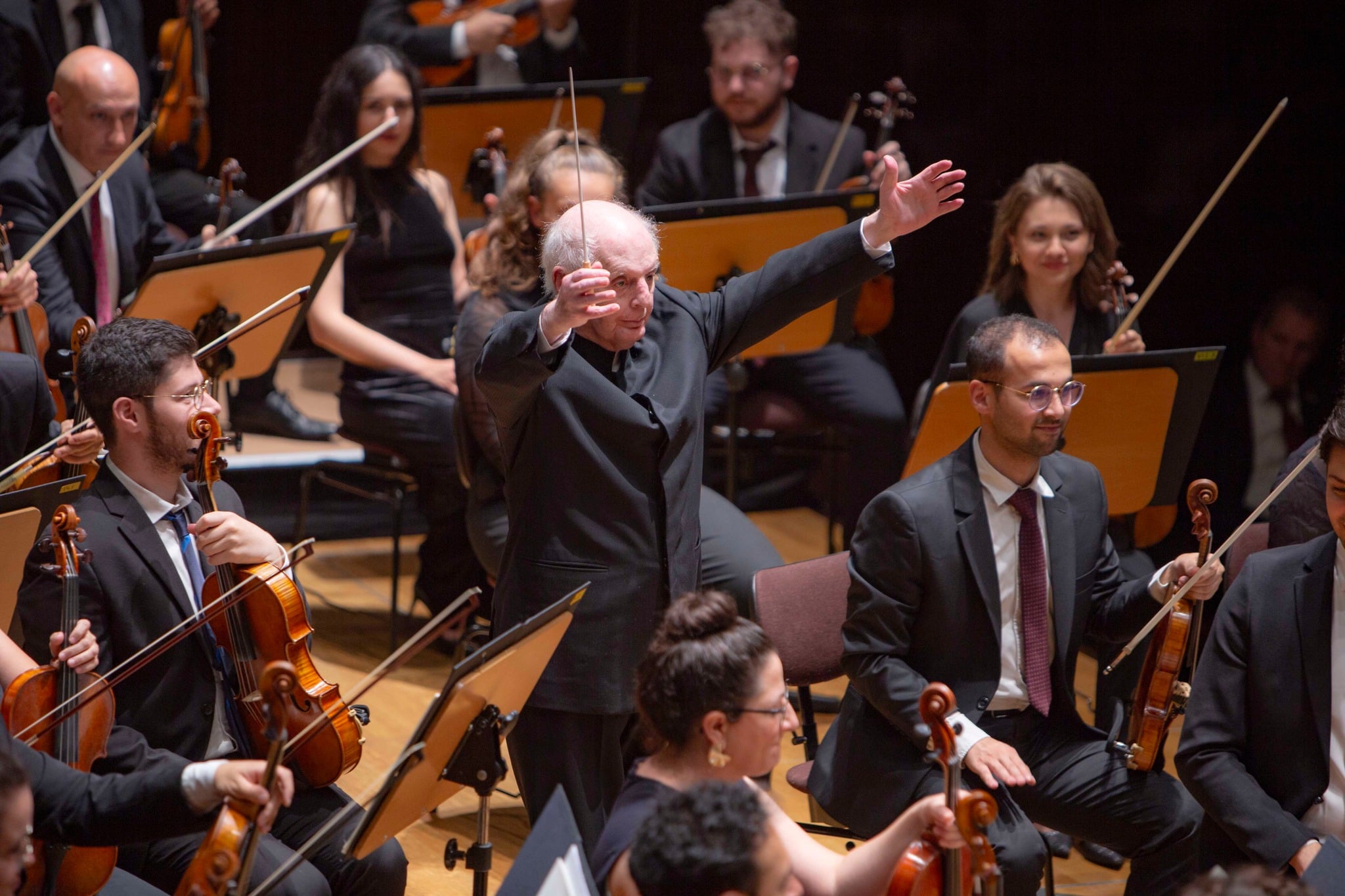Composer says religion is music’s most radical force
mainThe Scottish composer James MacMillan has released the text of a speech he is giving next week, recasting organised religion as a radical element in art rather than, as widely seen, a conservative one.
He says: ‘From Elgar to Messiaen, from Stravinsky to Schnittke, from Schoenberg to Jonathan Harvey one constantly hears talk of transcendence, mystery and vision.’
Macmillan, a devout Catholic, argues that ‘despite the retreat of faith in our society, composers over the last century or so have never given up on their search for the sacred…’
He adds: ‘Perhaps that search now, as it is for any artist who stands out against transient fashions of the cultural bien pensant, is the bravest, most radical and counter-cultural vision a creative person can have, in the attempt to re-sacralise the world around us.’
Discuss.






In my humle opinion could this be said louder but no more clear. I am agree with him. In fact I wrote my chamber oratorio thinking on it.
http://youtu.be/0eKO4yvo4cE
There are no sacred things.
How terribly sad for you.
What a touching act of faith on your part. And how wrong headed. For most of the last millenium, most of the music of the West which has been written down has been religious. Regardless of the religious life of most composers, religion, and specifically, Christianity, has been the inspiration for much of what they have written. Those modern composers who have continued the melodic, harmonic, contrapuntal, and orchestral traditions of the last several centuries, from Lauridsen to Pärt, Gorecki to Tavener, have acknowledged religion and its inspiration. Those who have explicitly departed from those traditions, or rejected the inspiration of religion, have, in the main, not written memorable music. It is as simple as that.
“To re-sacralise the world around us” is neither ” radical ” nor ” brave”.
It is most likely a recipe for disaster taking the exclusiveness of most religious beliefs into account.
The increasing trend of many of today’s societies who move their ideological goalposts towards intolerance and exclusion goes often hand in hand with strong religious beliefs and is nothing I will ever celebrate or wish for.
“The search for the sacred” though can have many shades and nuances , and one certainly doesn’t need organised religion and its ongoing blood soaked history to search for a meaning beyond a purely materialistic view of the world.
And just for the record: many important composers in 20th century such as Debussy,Ravel,Strauss,Gershwin,Bartok,Shostakovich,Prokoviev,Ligeti,Boulez showed no sign of religion as a creative force behind their compositions.
Agreed.
There is a difference between spirituality and religion, the first is an inner awareness (unspecified), the second worldly organisation (specified). Strong, specifically religious works are rare, though, in the 20th century – only Stravinsky’s Psalm Symphony comes to mind. The rest demonstrates a certain feebleness, flabbiness, and kitsch (like Messiaen’s later works – his early organ works are very strong; and except Pärt). Also MacMillan’s own work shares the aroma of easy sentimentality we find in the more ‘easy’ forms of catholicism.
Lots of earlier composers did not also. They often wrote religious works (requiems, masses, etc.) but despite the indisputable spirituality (see Borstlap’s comment) of their music, religion doesn’t seem to have played a huge role in daily life. Mozart, for instance, doesn’t seem to have been especially devout. Ditto for oh, I don’t know… Brahms, Beethoven, and probably others I’m too lazy to think of.
Brahms was spiritual AND religious initially (think of his Requiem) but later in life he read Schopenhauer and lost all faith in spiritual things (hence the grim 4th symphony).
The implication of earlier musicians not being religiously motivated seems a bit disjointed. It may be more accurate to state that religion was a foundational consideration in their life as a whole.
But whether or not one agrees with a religious incorporation (usually due to being put off by a darker association), it must be said that the answer to bad religion is good religion, not no religion.
The most excruciating,pulverizingly pathetic attempt at a religious work, turning-out to be its own crazy caricature, is surely Messiaen’s quasi-opera ‘St Franciscus’. Let this thing be a grave warning for budding composers with religious leanings.
Interesting that current attempts at positive marketing of new music, against the well-founded suspicions of audiences, still stumble into the two terms ‘cutting-edge’ and ‘radical’, the most worn-out war cries from the barricades of half a century ago, as if to suggest that the listener’s musical expectations have to be woken-up from comatose slumber, lulled into indifference by all those dead white lethally-boring chaps like Beethoven, Mahler, Ravel, etc. etc. Sometimes you think a sanatorium should be set-up in the Black Forest to have composers, new music promotors and Daniel Barenboim recuperate from their affectations.
I don’t see why this is a news-worthy statement to make. Religious conservatism has come to the 180° point of the arts paradigm. It’s now ‘radical’ to be conservative in a careless society. Good on MacMillan.
Then there is the case of Avro Part.
Arvo Pärt.
Of course! Momentary dyslexia. Mea culpa.
Bravo x 1,000 times for this composer and his sentiments/speech!! Couldn’t agree more.
PSA: To ‘sacrilise’ something is not the same as to indoctrinate.
This isn’t about dogma or indoctrination–or anything propositional–but about finding moments of beauty even in the banal of daily life. Classical musicians and fans, of all people, should applaud and support this understanding.